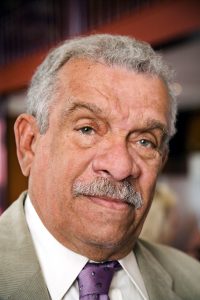DESPITE the important place that playwrights occupy in world literature (William Shakespeare, Arthur Miller, Samuel Beckett, Tennessee Williams, Harold Pinter, Oscar Wilde, Henrik Ibsen, Derek Walcott, Wole Soyinka, Lorraine Hansbury, are all noteworthy playwrights), there undoubtedly remains some sort of stigma attached to being a playwright – as if the writing of plays exists on a level of writing that is below the writing of poems and prose.
Why does playwriting not get the respect it deserves? I think a part of it has to do with theatre itself being built on so many different genres and artistic styles. So while the novelist or the poet can write and immediately send their work out into the world, the playwright has to write, then wait as his/her work goes through several stages where other art forms come together to shape the playwright’s words on the stage. So, in a way, what is seen on stage might be regarded as only one aspect of the whole artistic endeavour that is theatre. This ‘being a part of’ rather than ‘being the whole’ work of art might be that which confuses people into believing that the written text of a play is not a form of art in its own right. However, what those people are missing is the knowledge of playwriting contributing to part of the whole work of art, playwriting being a work of art itself, and playwriting probably being a more complex form of writing than either poetry or prose.

It is true that the text is only a part of the various disciplines that come together to create a stage play. However, it is possible to contend that the text of the play itself is the most important, as, without the text, there is no story – no lines for the actors to read, no stage directions, no notes regarding music or costume. However, once the base is established, the text gives life to the physical play by taking on actors who come with the discipline of acting firmly entrenched within themselves, a director who comes with the artistic skill of directing, musicians, costume designers, set designers, choreographers and many others come to the production, to bring the text to life, to make it come alive on the stage, bringing with them their entire arsenal of artistic skills so that at the end of the day, when the play booms to life on opening night, it can be quite easy to forget that beneath an actress’ sterling performance, beneath the glamorous costumes, beneath the soaring music and the giant sets, there is a small book of words – the text – the play that gave life to everything else that stands upon it, and in this way, it becomes easy to see why the playwright is often relegated when surrounded by actors, directors, dancers and so on. The skills of many people in a theatrical production take on visual, physical, or tangible forms. It is only the playwright’s work that remains intangible while giving form to all of these other areas of artistry.
Regarding the text of the play as a work of art by itself – this categorisation should be obvious. The written word regarding all of the elements that constitute works of fiction (characters, literary techniques and devices, wordplay, etc.) are utilised by playwrights in a number of unique and interesting ways. Derek Walcott’s plays contain the language and imagery of the Caribbean, while Shakespeare’s employs the poetic strategies that he is most famous for. There is no doubt that plays function as literature and, therefore, can be regarded as works of art that tell stories, educate, and represent and pass on traditions and cultural norms and forms.
There is one important element that needs to be observed when talking about playwrights in comparison to other professions in the arts, particularly other writers, and this is the fact that playwrights often have to go beyond the expectations that the world has for writers. We are not only expected to tell a good story and to ensure that our work contains enough literary heft, but we also have to contend with the fact that our work might never reach an audience if it is not staged. Playwrights have to write knowing that their work is designed for performance, for an actor to present to the world – and this brings with it certain limitations and certain difficulties that a poet or a writer of prose would never have to contend with. Playwrights often have to deal with stage directions, while incorporating set designs, musical interludes (sometimes with lyrics and music), as well as carefully tracking the entrance and exits of characters, as well as the placement of props and set pieces within the play. It is overwhelming, laborious work, as all writing is – and yet, it can definitely be regarded as being more overwhelming and laborious than probably any other kind of writing.
Despite all of this, playwrights are still often seen as inferior to actors and directors, inferior to poets, inferior to short story writers, and so on. This notion is unfounded and perpetuates a harmful untruth of the role, the work, and the contribution of playwrights.




.png)









